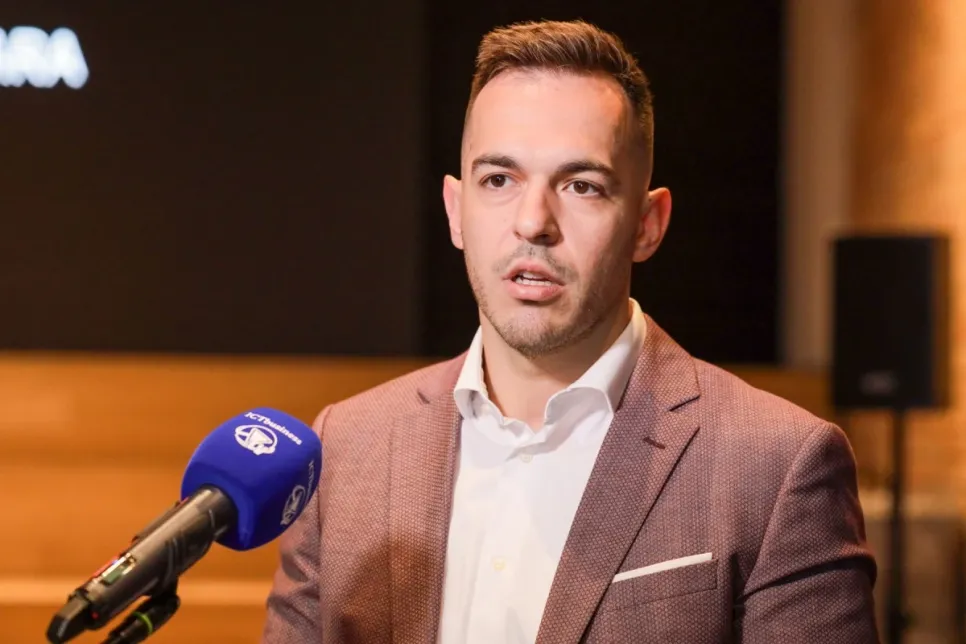MWC26 Opens Registration, as Countdown to the “IQ Era” Begins
Registration is officially open for MWC26 Barcelona, the world’s largest and most influential connectivity event.

Croatia’s data center industry stands at a pivotal moment, and digital transformation is reshaping global infrastructure priorities. The Croatian Data Center Association (HDDCA) believes the country is moving in the right direction toward recognizing the strategic importance of digital infrastructure, but stresses that stronger collaboration with the government is essential for sustainable and structured growth.
“The state is increasingly aware of the importance of the digital economy, and we believe that through open dialogue we can find solutions for faster and more organized sector development,” says Filip Olujić, CEO of DataBox and Vice President of HDDCA, in an interview with ICTbusiness.info. “Croatia is becoming more digitally oriented, and data centers are becoming the foundation of national digital sovereignty.”
Olujić’s remarks come amid a surge in global investment in AI-driven data centers. Specialized AI facilities are the fastest-growing segment of the market, valued at $15.02 billion in 2024 and projected to reach $93.6 billion by 2032, representing a CAGR of 26.83%. Hyperscale data centers, the backbone of AI infrastructure, are also expanding rapidly, with the market expected to grow from $162.79 billion in 2024 to $608.54 billion by 2030, a CAGR of 24.6%.
To ensure Croatia is part of this global momentum, the country must accelerate the construction of new data centers, an effort in which HDDCA can play a key advocacy role. During Vertiv Week in Tognana, Italy, where European data center associations met, Olujić emphasized that close cooperation with state institutions, particularly relevant ministries, is vital for Croatia’s competitiveness.
“Our goal is to work intensively with ministries and other public institutions,” he said. “We need alignment and understanding so that Croatia can catch up with the infrastructure demands of the digital era.”
Speaking from DataBox’s perspective, one of Croatia’s leading data center operators, currently expanding with a major new facility, Olujić explained that industry challenges are shared across the sector. “That’s precisely why we joined forces through the association to ensure everyone is working toward the same goals. Regardless of location, all operators face the same infrastructure and regulatory challenges. If more companies invest in this area, we can jointly strengthen Croatia’s digital sovereignty and technological ecosystem,” he said.
The new DataBox facility is designed to meet rising power and density requirements driven by AI workloads. “Currently, typical rack densities in Croatia range between 3.5 and 5.5 kilowatts,” explains Olujić. “We’re expanding our existing data center to support up to 10 kilowatts per rack, the highest density in the country to date. That’s sufficient for entry-level AI workloads, but it’s not the only driver. Even conventional IT systems are becoming more power-intensive. The new facility will include rooms with higher rack capacities to support both traditional and AI environments simultaneously.”
When asked what kind of government support the industry needs most, Olujić highlighted three priority areas. “First, we need clearer guidelines and faster permitting procedures. The state must recognize that data centers are not just ordinary business or industrial buildings; they are data factories, a form of strategic national infrastructure. This needs to be defined and supported in the legal framework,” he emphasized.
The second area is education and talent development. “We need stronger collaboration with universities and technical schools so that students gain exposure to technologies used in modern data centers, from power systems to mechanical engineering and cooling. Our industry is an excellent example of applied technical knowledge, and developing this talent pipeline is critical for the future.”
Finally, Olujić stresses that sustained coordination between government, education, and industry is the only way to ensure long-term growth and resilience. “Without strategic cooperation among these three pillars, Croatia will not be able to secure sustainable data center expansion or achieve true digital sovereignty,” he concludes.
The message is clear: as Europe races ahead in building AI-ready digital infrastructure, Croatia’s data center sector is ready to contribute, but it needs the government’s understanding, partnership, and decisive action to unlock its full potential.